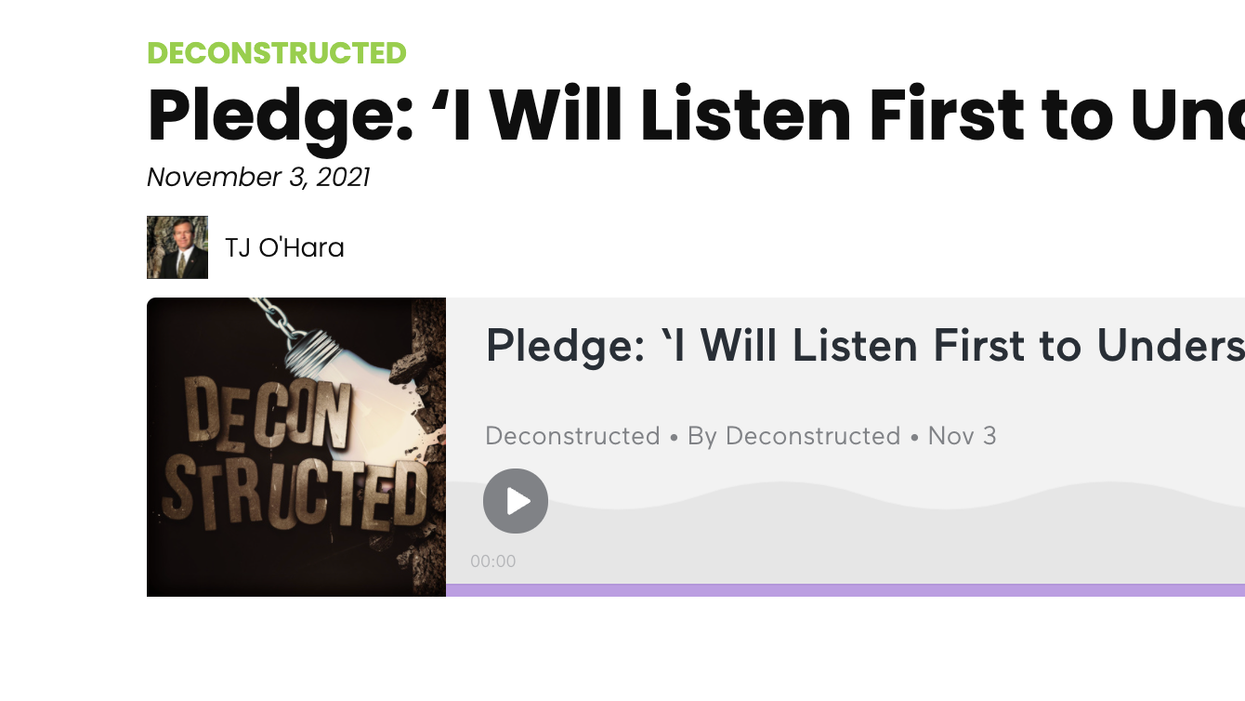Pearce Godwin, founder and CEO of the Listen First Project, joins Deconstructed to discuss what is driving the political divide and how to fix it. After working for the U.S. Senate and serving as a national political consultant for campaigns, Godwin traveled to Africa with a relief organization to gain a fresh perspective which ultimately led him to found the Listen First movement.
Deconstructed podcast




















Trump & Hegseth gave Mark Kelly a huge 2028 gift